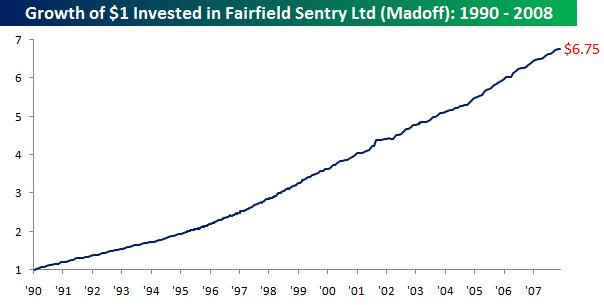Ed Thorp: Survival of the Fittest Mind
“When you begin to think for yourself, the whole world changes and becomes much clearer.” — Ed Thorp
Why is enduring success in markets rare? I’ve written before about the usual suspects:
Ego, biases, and emotions.
Mistakes meeting overconfidence and concentration.
A failure to correct mistakes or adapt to change.
A lack of resilience due to leverage or fragile capital structure.
Style drift into a game in which the investor has no edge.
Lastly, burnout.
I would like to add:
A failure to learn from mistakes; and
A lack of awareness of risks at all levels of the game.
Take Sam Bankman-Fried, founder of FTX and recently found guilty of fraud, whose case illustrates both issues. Reputable venture investors, media outlets, and author Michael Lewis all fell for the billionaire wunderkind and his effective altruism trope. Lewis tried to defend Sam by comparing him to Bernie Madoff, arguing that FTX at least had a real business. But not only did Madoff also have a legitimate market making business, he operated similarly with a remarkable air of social proof and exclusivity, protecting him from scrutiny.
In his book Mind over Money, Brad Klontz quoted several of Madoff’s victims and compared it to “country-club investing.” Once the first ‘smart money’ investor writes a check, “everybody wants in on it, too.” According to one early investor, “Everybody said, ‘You got to go with Bernie.’”
“The best thing in New York City was to get to Bernie Madoff,” one investor remembered. “Everybody wanted to be there.”
Professional investors like to believe they can take advantage of this herd behavior but easily find themselves caught up in a similar dynamic. Professor Aswath Damodaran recently tore into smart money, calling it “just greedy money that ultimately runs into a wall sooner or later.”
While mistakes are a part of the game, how you deal with the mistakes matters a great deal. And some mistakes are more embarrassing to admit than others. But if it’s too uncomfortable to confront your mistake, if you don’t address the culture, incentives, and process that led to it, you are just planting the seeds for the next one.
Are you incentivized to chase deals and put money to work, or is there time to follow curiosity and investigate thoroughly? What are you optimizing for: short-term returns or making good decisions?
People are now washing their hands clean of the FTX decision. “He lied, who could have known.” Well, some people did figure Madoff. One of them was legendary quant investor Ed Thorp, an outsider who had no interest in being popular at the proverbial country club (another one is apparently being commemorated near FTX’s headquarters in The Bahamas).
In 1991, McKinsey & Co. asked Thorp to review their pension plan’s portfolio. Among the positions, Thorp found one “very strange investment.” Every month, the manager “printed out one or two percent”. Thorp didn’t understand the lack of volatility and neither did his client.
The manager, Madoff, had refused to share much about their work but Thorp learned that the strategy was to be long a portfolio of stocks, buy puts “a little below the stock price” and sell calls a little above. The premium received for the call option “approximately balanced the premium he paid for the put.” Madoff gave up upside to buy downside protection.
Except that the put protected him from losing a lot, not from losing anything. “It certainly didn’t mean that he would win every month,” Thorp noted. But Madoff didn’t lose, not even a little. It didn’t make sense and presented a puzzle that Thorp could not resist.
Surviving games: the three levels of risk
Thorp had been born in Los Angeles in 1932, grew up during the Great Depression, and earned a PhD in math. He then followed his curiosity from academics to games, first in Las Vegas then on Wall Street which he called “the biggest game in the world.”
Thorp beat the casinos at Blackjack and Roulette, set up the first market neutral hedge fund, Princeton Newport Partners, and pioneered strategies like convertible arbitrage.1 Before he shut down PNP, he was basically turning it into the first multi-strategy hedge fund (and later invested in the most prominent one, Citadel). If I had to summarize his story, it would be ‘genius2 becomes obsessed with games, repeatedly finds edge, survives, wins, and leaves to enjoy life.’

Thorp called the gambling world “one of the best possible training grounds for getting into the investment world.” In both gambling and investing, “you learn how to manage money, you learn how to compute odds, you learn how to reason what to do when you have an advantage.” In both games, you can blow up if you bet too much “even though each individual bet is in your favor.”
Thorp is not the only great investor obsessed with games. Some, like Bill Miller, even study gamblers. Miller did it because he realized that “great security analysts (great handicappers) do not necessarily make great money managers.” Analysis had to be paired with a disciplined system for sizing bets (Miller, Thorp and others rooted their approach in the work of John Kelly). But the world of gambling also teaches one to study the metagame.
During his time in Vegas, Thorp’s coffee was drugged and someone tampered with the brakes on his car. He learned to be wary of his surroundings and pay attention to the character of the people involved in the game. He learned to assess the risk of moves within the game as well as the risk of the game not being played according to the rules. Card counting skills are worthless if the house is willing to cheat you.
When shifting my focus from beating gambling games to analyzing the stock market, I naïvely thought that I was leaving a world where cheating at cards was problematic and entering an arena where regulation and the rule of law gave investors a fair playing field. Instead, I learned that bigger stakes attracted bigger thieves. — Ed Thorp
More investors should study gamblers, if only as a reminder that games of money attract bad actors, and always have. Cutting his teeth in Vegas certainly helped Thorp develop a unique combination of academic knowledge and street smarts. He once outlined his risk framework, drawing a distinction between local and global risks. If we add a third factor, the ‘metagame’, we will be well prepared.
Keep reading with a 7-day free trial
Subscribe to Frederik's Age of Alchemy to keep reading this post and get 7 days of free access to the full post archives.




